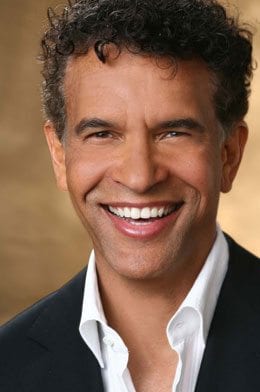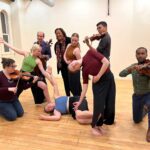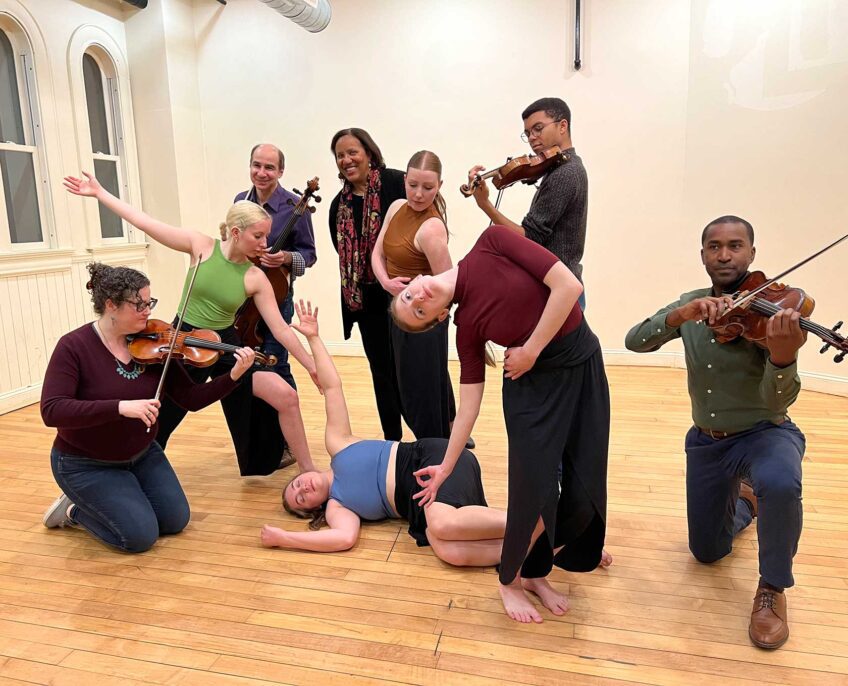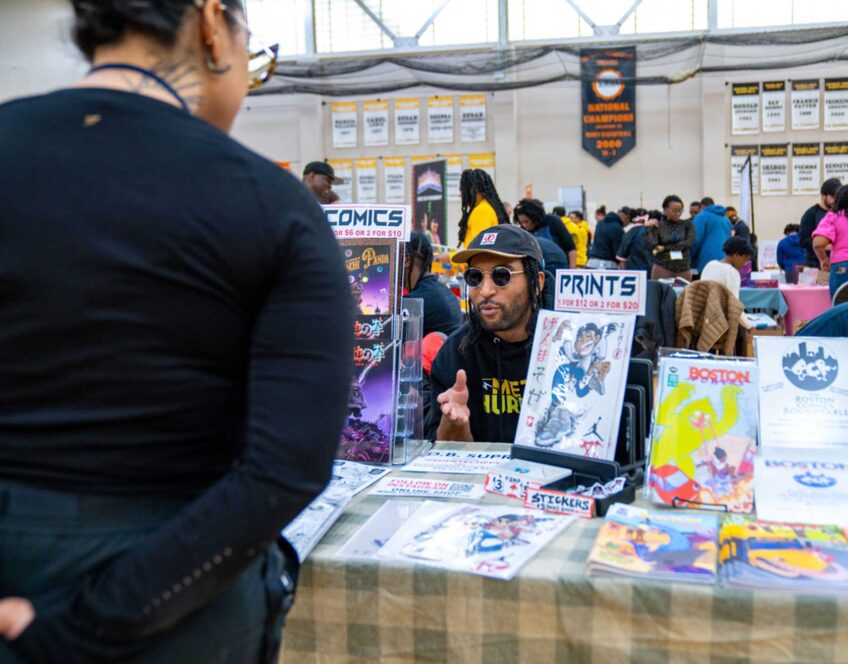
The son of a Tuskegee Airman, Brian Stokes Mitchell is the consummate performer
About a dozen different characters performed at Sanders Theatre in Cambridge Saturday night, although just two men were on the stage: pianist Tedd Firth and the magnificent Broadway baritone Brian Stokes Mitchell.
As Mitchell took the capacity audience in the 1,100-seat theater through a tour of favorite songs he has sung as a performer in American musicals, he became the characters behind each song.
Telling the audience that he’s performed just about all the roles he has wanted to play but one, Mitchell introduced “Soliloquy” from “Carousel.”
As the flawed hero, carnival barker Billy Bigelow, contemplates raising a son — or daughter, Mitchell’s handsome face and lithe body contorted to convey the anguish of this loving, footloose man and then changed to express his joy, hope and resolve.
On this Mother’s Day eve, a number of Mitchell’s songs explored fatherhood.
He brought authority and tenderness to “Wheels of a Dream,” from the Ahrens-Flaherty score of “Ragtime,” in which he played Coalhouse Walker Jr., the African American father who envisions a better life for his child.
With his first song, “Some Enchanted Evening” from “South Pacific,” Mitchell set the tone for the concert, a presentation of Celebrity Series of Boston, which ran for 90 minutes, and after standing ovations, also included two encores.
Mitchell’s deep, commanding baritone easily overcame a loud if momentary grumble in the mike, and while his voice cast its spell, his humorous grimace introduced his warm sense of humor.
Promising the audience a “big baritone” concert, he praised Sanders Theatre for its acoustics and architecture, saying it is one of his five favorite concert halls in the U.S.
Noting that his Broadway roles have included assorted “rakes and rapscallions,” he added, “Not all of my favorite characters have been bad boys,” and began a goose-bump inducing rendering of “Dulcinea,” from “Man of La Mancha.”
Each song was an act in itself. In between, Mitchell was every inch the ebullient leading man, telling anecdotes, mixing a bit of autobiography with comments on his craft and the collaborative world of theater.
An elegant and lyrical pianist, Firth was as versatile as Mitchell, easily adapting to the style, tempo and mood of each song.
Mitchell, 53, has earned critical raves since he began performing on Broadway in the early ‘90s and in 2000 he won a Tony for Best Actor in a Musical for his performance of Petruchio in “Kiss Me Kate.”
Raised on the West Coast and the son of a Tuskegee Airman, Mitchell was successful early on in Hollywood as a television actor. After a seven-year stint as Dr. Jackpot Jackson in “Trapper John, M.D.,” Mitchell moved to New York where he has thrived at his true calling — the blend of singing and acting that is musical theater and cabaret.
He also met his wife, the actress Allyson Tucker, in New York, where they live with their son, Ellington, 6, and an adopted mutt, Diggity.
His capacity to both act and sing mesmerizes audiences and the cabaret format was an ideal showcase as he turned the theater into an intimate room, bringing his voice, joy, wattage and ebullience up to the balconies.
As Mitchell’s long, lean body and hands complemented the expressiveness of his voice and face, it seemed that every inch of him was devoted to pouring out the song.
As he sang “Stars” from “Les Misérables,” the song of the merciless, self-righteous policeman Javert, the spotlight shaded Mitchell’s eyes and his long fingers intertwined in a prayerful clasp, creating an image of cruel piety.
Instead of the semi-operatic vibrato often associated with a baritone, his voice produces smooth, deep, rich currents of sound that he varies in timber, shading and color to suit the mood of the song and the character.
Midway through the concert, Mitchell put aside his microphone and sang the poignant ballad, “This Nearly Was Mine” from “South Pacific.” Unfiltered by amplification, his powerful, sonorous voice filled the resonant hall and evoked another heroic baritone, Paul Robeson (1898-1976).
With Firth’s jazz-inflected piano accompaniment, Mitchell brought edgy, aggressive energy to the streetwalker’s call for business by Cole Porter, “Love for Sale.”
He and Firth overlaid a discordant version of the swinging chorus from “Take the A Train,” Duke Ellington’s paean to uptown Manhattan, with Stephen Sondheim’s stark “Another Hundred People,” a downbeat portrait of a crowded city of strangers. The spotlight lingered on Mitchell miming the pulsing motion of a subway rider holding a strap.
Seated at a stool under low light, Mitchell gave a sensual and spare delivery of Gershwin’s “How Long Has This Been Going on,” and Firth performed a supple, bluesy piano solo.
Mitchell departed from the American song tradition just once to perform Antonio Carlos Jobim’s classic “Waters of March.” Unfolding to a lilting samba beat, the song is a poetic collage of images inspired by the rainiest month in Brazil. Moving between Jobim’s English and Portuguese versions, Mitchell sang one chorus a cappella and then, playing a melodion, he joined Firth in an infectious instrumental duet.
Mitchell closed the concert with “The Impossible Dream” from “Man of La Mancha,” which he had sung at the Boston memorial service for the late Sen. Ted Kennedy.
But just as moving was his a cappella rendition of “America the Beautiful.” As he slowly rolled out each word, its grandeur called to mind the immortal version of this anthem by Ray Charles.

![Banner [Virtual] Art Gallery](https://baystatebanner.com/wp-content/uploads/2024/04/NJ-H_1-150x150.jpg)


![Banner [Virtual] Art Gallery](https://baystatebanner.com/wp-content/uploads/2024/04/NJ-H_1-713x848.jpg)

